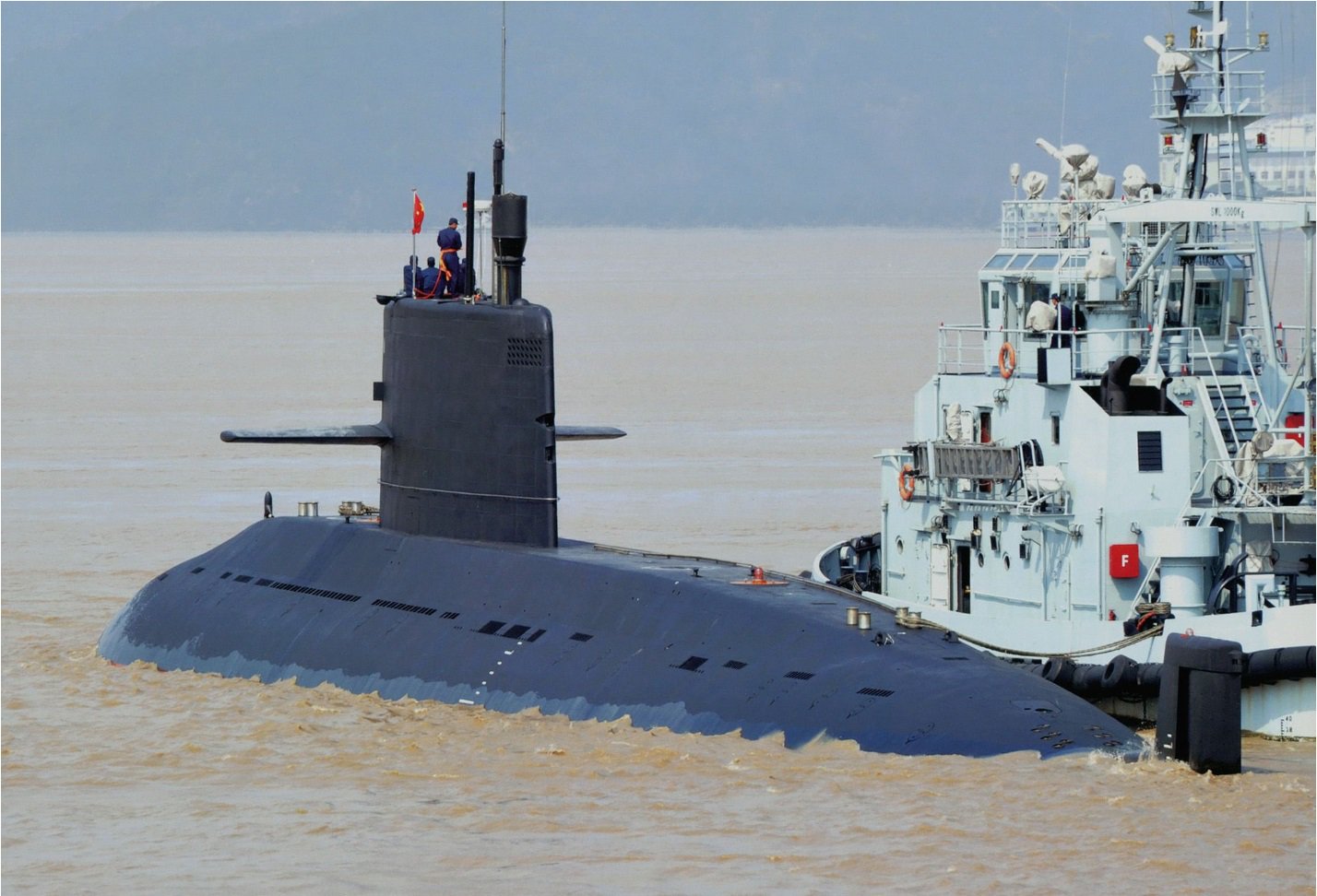A joint working panel from the Thai and Chinese defense ministries has confirmed the continuation of the controversial submarine procurement deal, agreeing to equip the vessel with a Chinese-manufactured engine. This decision follows intense negotiations, reflecting both nations’ commitment to maintaining long-standing bilateral ties. The S26T is reportedly to be based on the Type 039A SSK of the People’s Liberation Army Navy (PLAN) also refered as Yuan class. It is a fairly recent design first commissioned in 2008 with a displacement of 3,600 tons and a length of 75 meters. Nationthailand reported that the agreement ensures the acquisition of a submarine rather than switching to a frigate, a consideration that was prompted by complications in securing a German MTU 396 diesel engine, as originally stipulated in the contract.
The Thai delegation, led by General Somsak Rungsita engaged in talks at the Defence Ministry over two days. The Chinese delegation included representatives from the China State Shipbuilding Corporation (CSSC), the Bureau of Military Equipment and Technology Cooperation (BOMETEC), and the State Administration of Science, Technology, and Industry for National Defence (SASTIND). Defence Minister Sutin was present for the discussions on the first day. The primary focus of the negotiations was whether to uphold the submarine deal or substitute it with a frigate purchase, following the CSSC’s inability to secure the German engine. Both sides concluded that altering the deal to a frigate would present more challenges than advantages for Thailand. Additionally, the Royal Thai Navy would only receive a partial refund for payments already made towards the submarine.
The talks culminated in a mutual agreement to preserve the submarine deal, emphasizing the importance of bilateral cooperation. To address the breach of contract, the Chinese negotiators proposed compensatory measures, including the provision of relevant tools, a training simulator, insurance, and naval officer training for Thailand, valued at several hundred million baht. Specific details of the compensation package remain undisclosed pending finalization. The Defence Ministry will present a summary of the negotiations to Prime Minister Srettha Thavisin and the Cabinet for approval. The contract requires amendments to extend the timeline by 1,200 days and to incorporate the Chinese CHD620 engine in place of the German MTU 396.
Assurance was given that the CHD620 engine, certified by Classification Societies and already in use by Pakistan, meets the necessary standards. While the term “compensation” was avoided by the Chinese negotiators, they acknowledged Thailand’s demands, which must be endorsed by China’s central military committee. Additionally, there were promises to propose to the Chinese government the purchase of Thai agricultural products as partial payment for the submarine. The Royal Thai Navy’s submarine procurement faced significant challenges when Germany’s refusal, based on legal restrictions against using German-made engines in foreign weapons, disrupted the original plan. Despite this, Thailand and China have resolved to move forward with the revised agreement, highlighting their strategic partnership.















